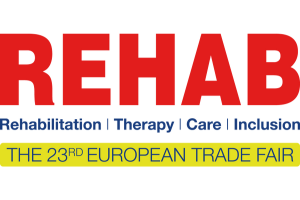Self-Help in transition - Generational change and digitalisation open up new opportunities
“Is self-help still relevant today or is it important for society, for individual members and how can young people be reached?” The committed members of the Stuttgart-based Landesarbeitsgemeinschaft (LAG) self-help organisation immediately have many answers to this question from the REHAB team: Bärbel Kehl-Maurer, Chairwoman of the LAG and her deputy Brigitte Stähle (Mukoviszidose e.V.) are convinced that traditional “self-help” in the sense of helping people to live and providing mutual support for those affected has changed its role to become a self-confident “self-advocacy organisation”.
From left to right: Bärbel Kehl-Maurer, Chairwoman of the Board of LAG Selbsthilfe BW; Dr Werner Jost (hearing impaired BW), assessor; Hans-Jürgen Hillenhagen, Treasurer; Karlheinz Schneider (BBSV), assessor; Brigitte Stähle (Mukoviszidose e.V.), Deputy Chairwoman
Strong together with political demands
“It's about empowerment, strengthening everyone involved; people with disabilities and chronic illnesses must demand and exercise their equal rights as a matter of course. People can shape local living spaces, share problems and solutions, help each other in bad times, meet at eye level and have social contacts. “However, the militant board members agree that it is also part of the task of self-help to draw attention to grievances. “Highlighting poverty in old age because of lifelong “childcare” leads to the logical demand for payment for care services provided by relatives, for short-term care options and for housing and living space options for adults with disabilities. Society needs to be honest here: how do we want to deal with the challenges of an ageing society, are we always focussing on costs?”
Show yourself, become visible ... even at large trade fairs
Silvia Gallant, project manager for self-representation at the LAG, is in charge of the “Young self-help” programme. The project is called “Show yourselves - from self-help to self-presentation” and addresses the everyday lives of young people with disabilities. “They need accessible language on the internet and in public places, transparency in inclusive schools, they need to be able to fulfil their needs. If I don't have diversity at school, if inclusion is not practised, children and young people with and without disabilities will lack experiences and positive role models.”
At REHAB Karlsruhe in Forum Hall 3 on Saturday (24 May), “Young self-help” will be on the programme, on Friday (23 May) the topic will be patient participation and on the opening day the focus will be on the Baden-Württemberg state action plan. Participation processes and constructive proposals have been developed by the LAG Selbsthilfe, but Silvia Gallant regrets that progress is very slow.
Bundesverband Selbsthilfe Körperbehinderter (BSK) goes digital for its 70th anniversary
Whether computer, tablet or mobile phone. Whether e-mail, video chat or messages via social networks. Advice and dialogue on the topics of self-help, inclusion and participation are becoming increasingly digital.
Jasmin Paul from BSK is looking forward to the association's digital future
70 years of active community
Peter Reichert, press spokesman for BSK Krautheim, has been familiar with REHAB for over 30 years and would like to emphasise the importance of self-help associations such as the BSK taking part in major trade fairs such as REHAB Karlsruhe.
